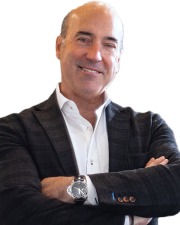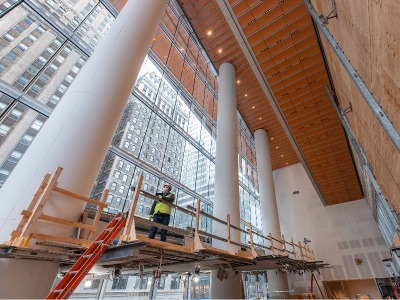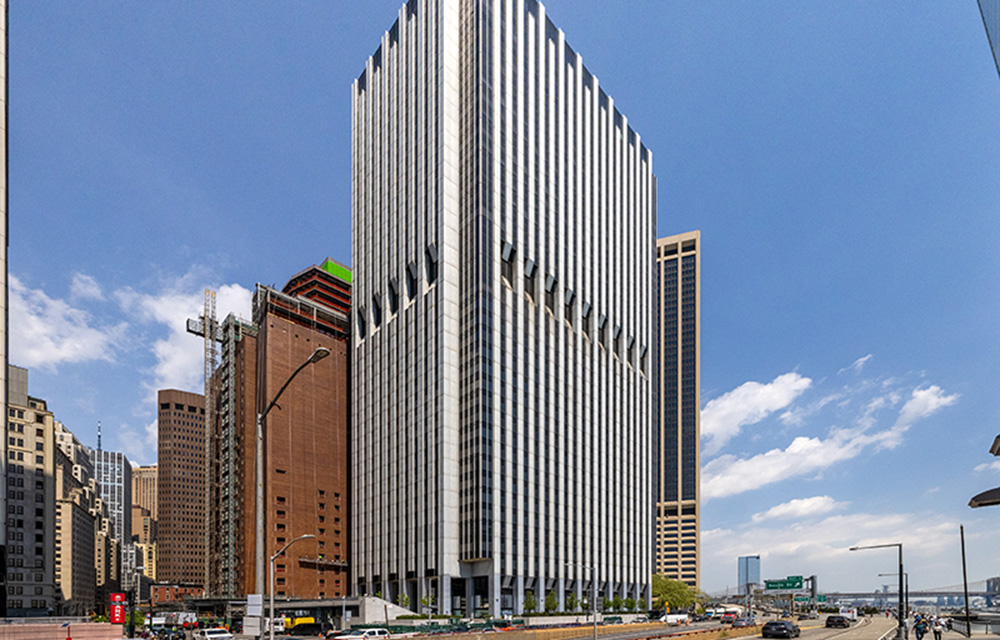Integrating mental health into construction - by Les Hiscoe

With both Mental Health Awareness Month and Construction Safety Week in May, it was encouraging to see such an emphasized focus on mental health—this is the level of priority and importance it always needs to have.
The pandemic spotlighted the absence of mental health consideration in the workplace. The management style of mandating expectations, without empathy, is no longer effective. People need to feel safe and secure to be productive and reach their full potential—and that starts with mental health.
In the construction industry, safety will always be the number one priority. While incredibly rewarding, construction is one of the most taxing, challenging jobs—frontline teams can sometimes work long hours in intense, demanding environments. Layer on top of that the additional considerations for working in New York City—from heightened public safety precautions while building in tight urban environments to enhanced site and personal security. This takes a mental toll—construction experiences the second highest rate of suicide among major industries. And while nearly 60% of construction workers reported struggling with mental health, only a third said they would communicate this to their employers.
Operationalizing mental health is critical to keeping people safe—and sending them home improved. In 2016, Shawmut put an increased focus on Total Worker Health, incorporating it into its safety program, but the pandemic has demanded accelerated work. A holistic approach is paramount—educating around safety from both a physical and psychological standpoint. This integration starts at the top, with leaders understanding the psychology of human behaviors.
Creating an environment where everyone is seen, heard, and valued needs to be driven from the top down. Diversity, equity, and inclusion work allows people to feel safe opening up about their struggles—without blame, stigma, or judgment. Creating inclusivity is ongoing work that is integrated into the very fabric of Shawmut’s culture, recently launching an Inclusion Learning and Awareness Plan that includes trainings on inclusive management and how to understand and interrupt unconscious biases.

This piece is extremely important—especially in an industry facing an opioid and substance use disorder crisis. While there are now ways to reduce the physical toll on workers (like with exoskeleton vests) and prevent opioid overdose deaths (with Narcan on every jobsite), these need to run in conjunction with inclusion work and mental health programs. Sharing struggles with substance use disorder puts people in a very vulnerable position—they need to feel safe and know they’ll be supported. That kind of environment is created from a culture fueled by inclusive management and leadership.
Research shows that improving worker safety from a mental health and well-being perspective can significantly reduce safety incidents. In a given day, 80% of a person’s thoughts are negative, but the lack of data on accidents caused by distracted workers highlights the fact that this very subject needs to be focused on. And that focus should start with mindfulness.
Mindfulness allows the opportunity to change our inherently negative lens, adjusting responses and actions to be positive. It also creates the space to be empathetic, and empathy builds stronger bonds with team members and fosters inclusivity. People become more comfortable asking for help and sharing ideas, which opens the door for more candid and regular safety conversations. This leads to enhanced learning and awareness, and ultimately ensures critical information is received before a safety incident occurs.
To implement and operationalize an abstract concept like mindfulness, Shawmut integrates it into its safety program, from regular company- and department-wide touchpoints to monthly jobsite Toolbox Talks, which typically focus on technical construction topics—safety from a physical standpoint. Shawmut recently launched Culture of Care Toolbox Talks that focus on safety from a psychological, mental health, and general well-being standpoint. Shared on jobsites and companywide, these enhanced topics include empathy, mental health awareness (PTSD, suicide prevention), racism and sexism, and provide resources that are available to everyone.
Imperative to a mental health program is mental health benefits with accessible offerings. Shawmut’s include well-being webinars that cover topics from resiliency to managing anxiety; its employee assistance program is confidential and free, offering short-term counseling and referrals—available 24/7—along with information and resources on emotional, financial, legal, family and work-life issues.
An effective approach to mental health is not possible without a strong cultural foundation. With a people-first culture rooted in care, Shawmut prioritizes mental health so everyone can become their best selves. This leads to highly-energized teams, which translates into a great customer experience, and ultimately, a strong and successful business.
Les Hiscoe is CEO of Shawmut Design and Construction.
Meridian Capital Group arranges 10-year retail lease for Mess at 236 West 10th St.


Behind the post: Why reels, stories, and shorts work for CRE (and how to use them) - by Kimberly Zar Bloorian

AI comes to public relations, but be cautious, experts say - by Harry Zlokower

Lasting effects of eminent domain on commercial development - by Sebastian Jablonski









.jpg)
.gif)
.gif)